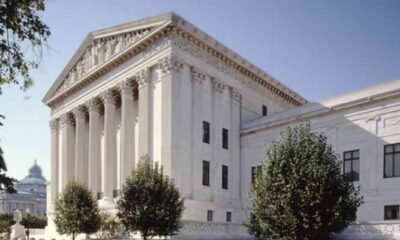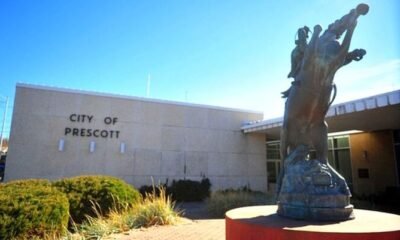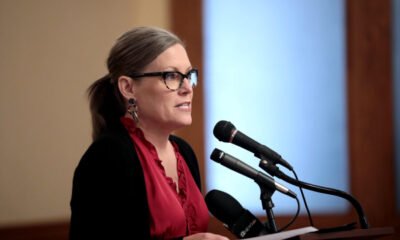Entertainment
Justice Department Uncovers TikTok’s US User Tracking on Controversial Issues Like Abortion and Gun Control
WASHINGTON — The Justice Department has accused TikTok of gathering bulk information on users’ views concerning divisive social issues. This comes following the signing of a law by President Joe Biden in April that could potentially ban the social media giant unless it severs ties with its parent company, ByteDance.
In court documents submitted to the federal appeals court in Washington, government lawyers revealed that TikTok employees used an internal system called Lark. This system allowed direct communication with ByteDance engineers in China.
Through Lark, sensitive U.S. user data was sent to Chinese servers, making it accessible to ByteDance employees in China. Lark’s internal search tool enabled ByteDance and TikTok employees in both the U.S. and China to gather information about users’ content and views on topics like abortion and religion. Last year, it was reported that TikTok tracked users viewing LGBTQ content, though the company claimed it had since removed the tracking dashboard.
The new filings represent the government’s initial legal defense in a significant battle over TikTok’s future, which is used by over 170 million Americans. The April law, supported by both parties, sought to address concerns that Chinese authorities could compel ByteDance to hand over U.S. user data or sway public opinion via TikTok’s algorithm.
The Justice Department warned against potential “covert content manipulation” by the Chinese government. They suggested that ByteDance could be directed to subtly influence the algorithm, thereby possibly impacting democratic trust and exacerbating social rifts. The practice, dubbed “heating,” allows certain videos to gain a specified number of views and is evident among TikTok and ByteDance employees.
Federal officials requested to submit a classified version of their brief, inaccessible to TikTok and ByteDance. TikTok spokesperson Alex Haurek responded, condemning the ban as a violation of the First Amendment and asserting confidence in the platform’s legal challenge.
Another tool, discussed in redacted court documents, was found to suppress content based on specific words. Such policies applied to ByteDance’s Chinese users and potentially TikTok’s international users, with ongoing investigations regarding their implementation in the U.S.
Officials argue that TikTok’s Project Texas, a $1.5 billion initiative to store U.S. user data on Oracle-managed servers, does not mitigate national security risks. TikTok contended that the ban infringes on First Amendment rights, emphasizing that divestment would alter platform speech and algorithm functionality.
The Justice Department refuted TikTok’s free speech claims, asserting the law’s focus on national security without targeting protected speech. They also disputed TikTok’s viewpoint discrimination argument, stressing the broader national security threat poised by technology in the hands of foreign entities.
Oral arguments are slated for September, marking a pivotal moment in the ongoing legal confrontation.

















